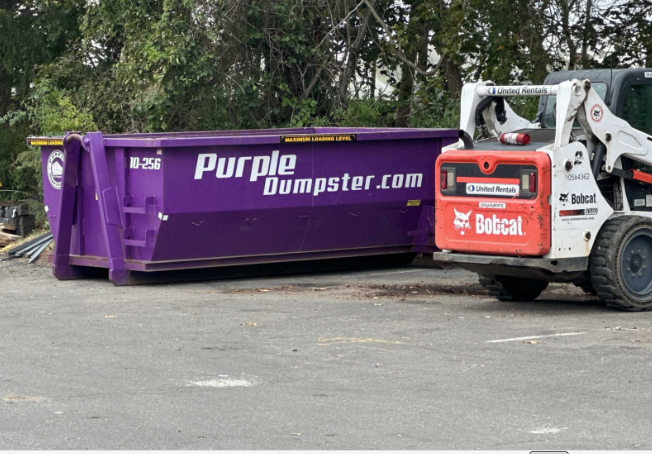Waste management has become a crucial topic in cities like Mississauga where urban growth, residential developments, and commercial projects all contribute to increasing amounts of waste. Whether you are decluttering your home, managing a renovation, or handling a construction site, the decision about where your waste ends up—recycling or landfill—is more important than ever.
So when you rent a dumpster, do you know how your waste is managed? In this guide, we explore the full picture of recycling vs landfill Mississauga dumpster practices, how your trash is sorted, what the city policies are, and how you can contribute to a cleaner, greener Ontario.
Why Recycling vs Landfill Matters
The way waste is handled after it leaves your home or job site has long-term consequences for the environment and economy. Landfilling sends materials to rest unused and unmanaged for years, contributing to methane emissions and soil contamination. On the other hand, recycling diverts reusable materials and gives them new life in the supply chain.
When it comes to Mississauga dumpster rentals, understanding how waste is sorted, separated, or sent directly to landfill is critical. Working with an informed provider ensures that your discarded items are processed in the most environmentally responsible way.
Waste Management in Mississauga: The Current Landscape
Mississauga is part of the Region of Peel, which sets guidelines for waste collection, recycling, composting, and disposal. The region has made significant strides in diverting waste from landfills by encouraging recycling and organics programs.
Mississauga Recycling Policy Overview
The Mississauga recycling policy is built around the following goals:
- Increase diversion rates through recycling and composting
- Reduce landfill dependency
- Educate residents and businesses on proper disposal
- Promote bin sorting using blue, green, and garbage bins
The city offers recycling for paper, cardboard, glass, plastic containers, and metal cans, while green bins are dedicated to compostable organic waste.
What Happens When You Rent a Dumpster in Mississauga?
When you rent a dumpster in Mississauga for residential or commercial use, the waste collected is usually transported to a transfer station. Here, materials are sorted based on type and weight. Depending on your rental provider’s service structure, materials may be separated at source (on your site) or offloaded at a sorting facility.
Dumpster Rental Waste Handling Process
- Bin Delivery – A dumpster is delivered to your property for a set rental period.
- Waste Loading – You fill the bin with household junk, construction debris, or yard waste.
- Pickup and Transport – The full bin is taken to a transfer station or disposal site.
- Waste Sorting – Depending on your provider, items may be manually or mechanically sorted.
- Final Destination – Recyclables are processed; non-recyclables go to landfill.
Understanding the bin rental waste diversion rate of your dumpster provider can help you choose a service that aligns with your environmental goals.
What Can Be Recycled in Mississauga?
Many items that are thrown into the trash could actually be recycled or composted. When renting a dumpster, you should try to separate these materials if possible, or request bins that allow for recycling collection.
Common Recyclables
- Cardboard and paper products
- Plastic containers (numbered 1 through 7)
- Glass jars and bottles
- Aluminum and steel cans
- Packaging material
Compostable Items
- Food waste (vegetables, fruit, coffee grounds)
- Yard trimmings and leaves
- Paper towels and napkins
- Egg cartons and paper-based food containers
While you may not think of compost in the context of dumpster rental, some providers offer organic waste bins for landscaping projects or commercial kitchens.
What Goes to Landfill?
Despite strong recycling programs, a significant percentage of waste in Mississauga still ends up in landfill. This includes non-recyclable materials and contaminated recyclables. Some common landfill items include:
- Styrofoam and plastic bags
- Mixed material items (e.g. laminated paper)
- Dirty containers
- Broken glass and ceramics
- Diapers and personal hygiene products
In addition, certain construction materials like painted wood, insulation, or treated lumber may not qualify for recycling and must be landfilled.
The Cost Factor: Recycling vs Landfill in Mississauga
Another critical point to consider is the landfill fees Mississauga residents or businesses may face. Disposal fees vary depending on the material type and weight, and choosing landfill disposal can be significantly more expensive than recycling or composting.
Typical Cost Differences
- Landfill disposal: Charged by tonnage, with additional environmental fees
- Recycling: Lower or subsidized by the municipality
- Compost: Often free or subsidized for green waste
By choosing to recycle or compost wherever possible, you can reduce your project’s overall disposal costs while contributing to waste reduction goals.
E Waste and Dumpster Rentals: A Special Category
One area where many people are unaware of the rules is e waste, or electronic waste. In Mississauga, e waste cannot be placed in regular dumpsters or garbage bins. This includes:
- Computers and laptops
- Cell phones and tablets
- Televisions and monitors
- Cables and wires
- Small electronics and printers
- These must be delivered to an approved e waste recycling depot or collected during city-sponsored collection events. Many responsible Mississauga dumpster providers will inform you of these rules to prevent contamination and fines.
How Bin Rental Companies Promote Waste Diversion
Some dumpster rental services in Mississauga are taking the lead in sustainable practices by offering:
Mixed Waste Sorting
Even if you do not separate recyclables yourself, companies can sort waste at their facility using mechanical or manual processes to divert materials from landfills.
Separate Bins for Waste Streams
You can request different bins for:
- General garbage
- Construction debris
- Metal recycling
- Yard waste
- Concrete and asphalt
This makes it easier for clients to comply with Mississauga recycling policy guidelines and avoid improper disposal.
Education and Support
Leading companies provide printed or digital guides on what can and cannot be placed in the bin, ensuring higher bin rental waste diversion rates.
Best Practices to Improve Waste Diversion When Renting a Dumpster
If you are committed to reducing landfill waste, follow these practical tips when renting a dumpster in Mississauga:
- Plan waste separation before the project starts
- Request separate bins for recyclables and landfill waste
- Avoid placing contaminated or dirty recyclables in the bin
- Keep compostable items separate from other debris
- Contact the rental company for guidance on e waste
A little planning goes a long way in ensuring that your cleanup or construction project supports sustainability and aligns with local regulations.
Why Choose a Dumpster Provider That Supports Recycling?
Not all dumpster rental companies are equal when it comes to environmental responsibility. When choosing a provider in Mississauga, consider those who:
- Follow Peel Region’s waste handling guidelines
- Provide multiple bin options for sorting waste
- Educate clients on recycling vs landfill Mississauga dumpster outcomes
- Maintain transparent waste disposal logs
- Divert materials wherever possible to protect landfill space
Working with the right company ensures your waste is not just collected—but handled with care.
Frequently Asked Questions
What is the difference between landfill and recycling in dumpster rentals?
Recycling diverts usable materials like cardboard, plastic, and metal into processing streams that give them new life. Landfill disposal involves burying waste, often leading to long-term environmental damage. Dumpster rentals that support recycling help reduce what ends up in landfill.
Does Mississauga charge landfill fees?
Yes, landfill fees in Mississauga apply based on the type and volume of waste. These charges can be significantly higher for non-recyclable or contaminated loads.
Can I put compostable waste in a rented dumpster?
In some cases, yes. Check with your dumpster provider to see if they offer organic waste bins or green waste options. Composting is highly encouraged for food and yard waste.
Are electronics allowed in Mississauga dumpsters?
No. E waste such as computers, phones, and TVs are not permitted in dumpsters. They must be disposed of at designated electronics recycling facilities.
How do bin rental companies handle mixed waste?
Some companies offer sorting services at their facilities. However, for better efficiency and lower costs, it is recommended that you separate waste streams at the source whenever possible.
Conclusion
Choosing between recycling and landfill is no longer just a matter of convenience—it is essential for a sustainable future. With growing environmental concerns, landfill fees in Mississauga, and evolving waste regulations, managing your waste responsibly makes both ethical and financial sense. When renting a dumpster, choose a provider that supports recycling, understands local policies, and prioritizes bin rental waste diversion. Every item you recycle instead of sending to landfill contributes to a cleaner, greener Mississauga. Contact us today to book your dumpster rental and make your project eco-friendly

